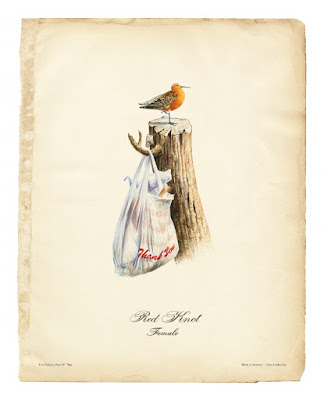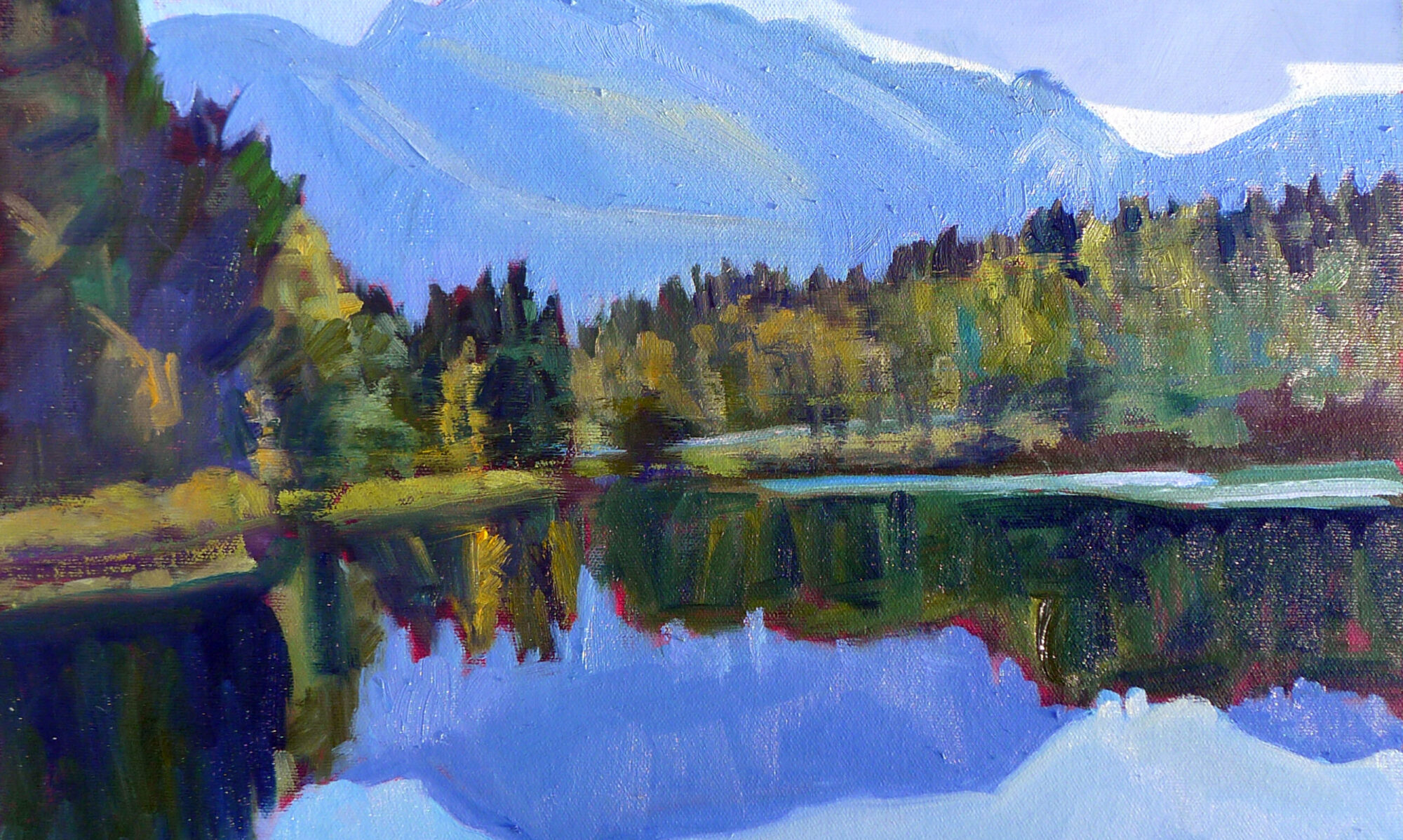A witty series of nature prints point out our devastating dependency on plastic packaging.
 |
| Double-crested Cormorant, Male, by John LaMacchia et al. |
Rockland, ME, has provisionally passed a law banning single-use plastic shopping bags. These bags are invaluable to plein air painters, but we’re a cheap group and we’ll figure out another way to dispose of our oily rags. (One of my most popular posts ever was instructions on how to fold a plastic shopping bag to fit more neatly in your kit.)
I support the new law, although some of my friends are opposed. Plastic bags caught in branches are an annoying side effect of densely-packed people, and we get lots of visitors in the summer. It won’t go into effect until next January, giving small retailers a chance to unload their stocks of bags. Plastic bags are already controlled in major cities in Canada. And my favorite grocery store—alas, not in Maine—has always had a bring-your-reusable-bag policy, which I navigated for years without trouble.
 |
| The ubiquitous tree-bag of North America. |
Nobody knows how long it really takes for plastic packaging to break down, because we haven’t had it long enough to tell. Plastic degrades when exposed to sunlight, but it happens more slowly when it’s cold. A current guesstimate is that a foam plastic cup will take 50 years to decompose and a disposable diaper will take 450 years. On both ends of the plastic bag’s life cycle, it creates microplastics—either as bits and bobs from the manufacturing process, or as waste from the breakdown of bigger plastics. Marine organisms are indiscriminate foragers, so they eat these microplastics. Bigger pieces of plastic end up in marine animals’ guts, with deadly results.
Not using plastic packaging is often an easy choice, a matter of choosing the eggs in the cardboard container instead of that other brand. It’s far easier than, say, buying a smaller car or building a new mass-transit infrastructure.
 |
| Eastern Towhee, 1. Male 2. Female, by John LaMacchia et al. |
Artist John LaMacchia describes himself as “an artist that makes things… and then he shows them to you.” Among his current work is a riff on John James Audubon’s Birds of America. This series of giclée prints, also called Birds of America, points up the difference between the environment of America 200 years ago and the environment today. For the birds, it’s our trash that makes the difference.
 |
| Red Knot, Female, by John LaMacchia et al. |
Of course, the modern artist is an idea man, and must outsource the art skills. For that, LaMacchia turned to British ornithologist and illustrator Daniel Cole. LaMacchia sketches out his ideas using a combination of photography and drawing, and Cole executes them. A calligrapher, Hamid Reza Ebrahimi, does the plate notations in calligraphy, using an English Round Hand style commonly used for copperplate engraving.
LaMacchia’s goal is to create 435 plates, matching Audubon’s complete oeuvre. He’ll have to speed up the process, though, since the trio has finished six prints since they started in 2014. Of course, Audubon included birds that are now extinct, like the Ivory-billed Woodpecker, the Carolina Parakeet, and the Passenger Pigeon. That should cut down the final count.
